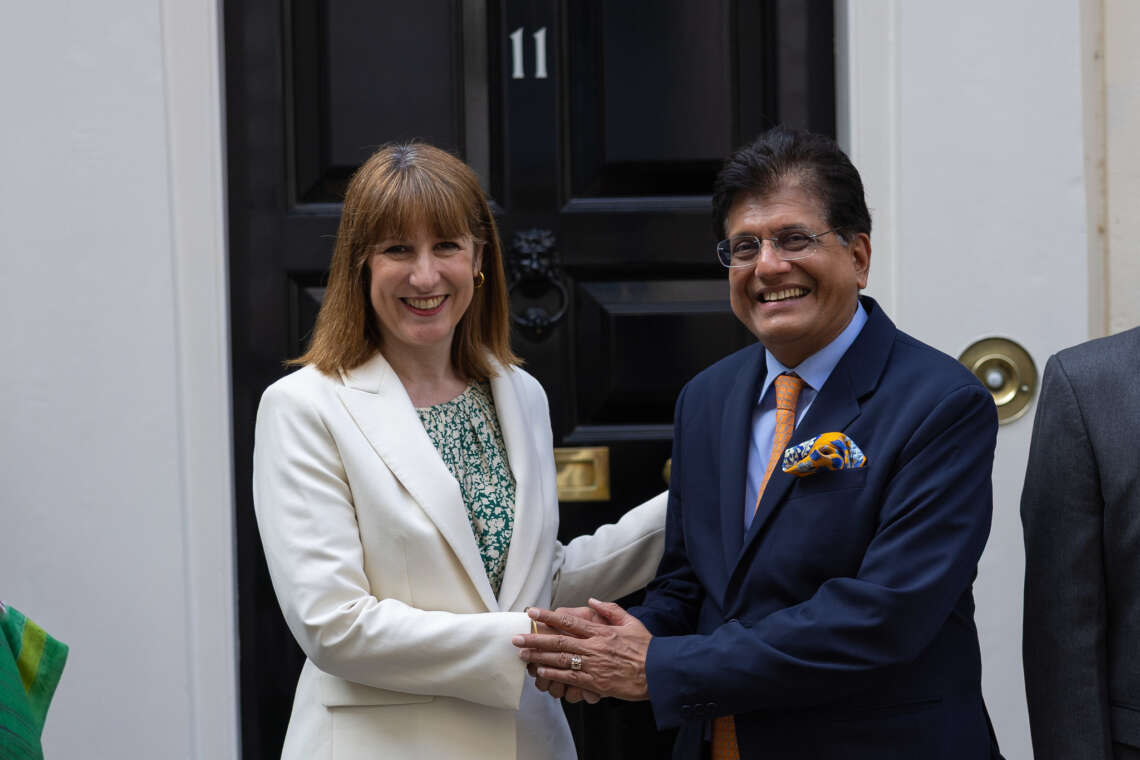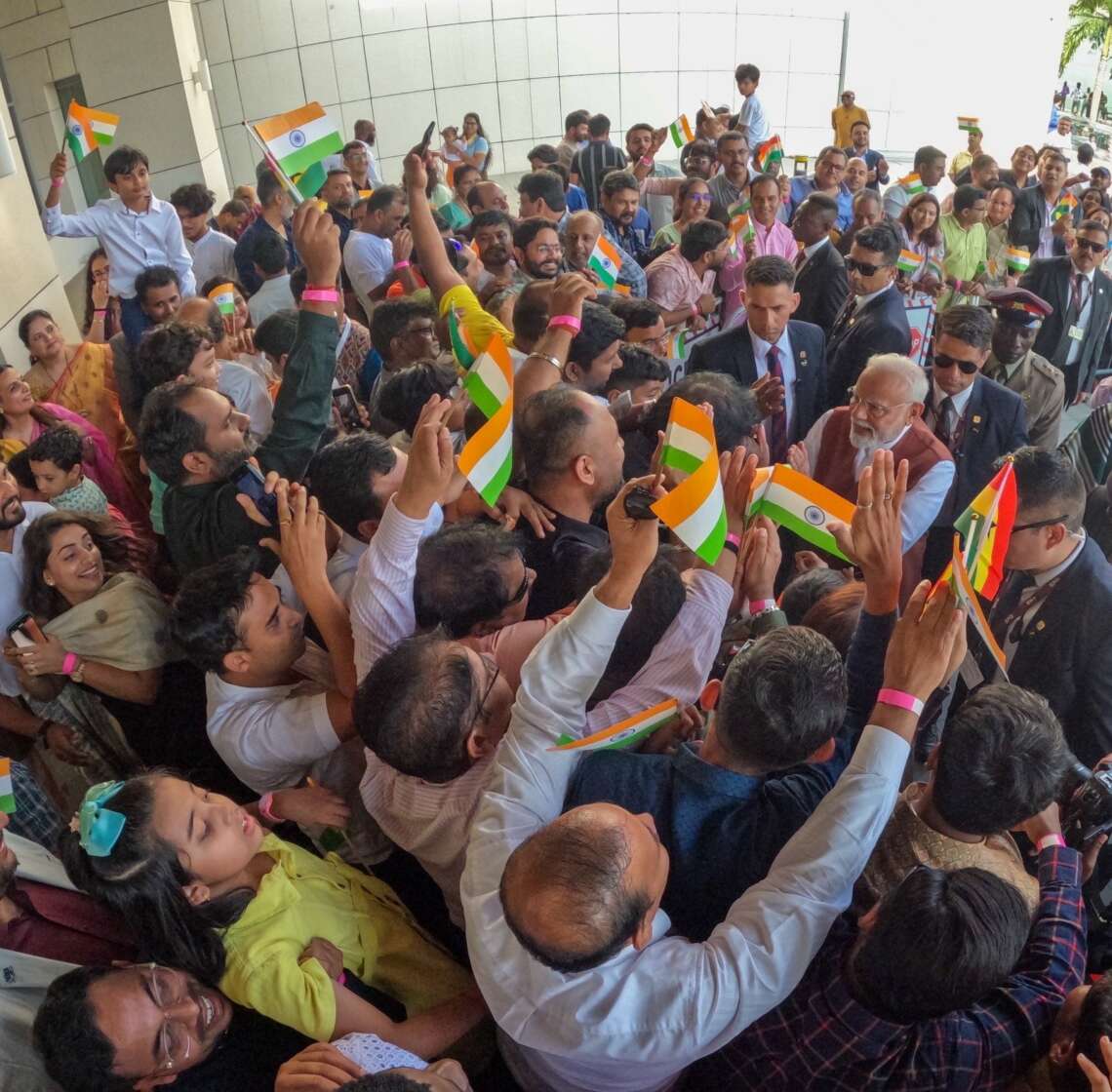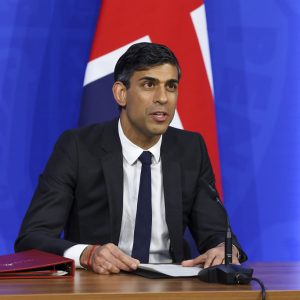The FTA also promises to double trade in goods and services between India and the UK by 2030, up from $56.7 billion in 2024
The recently finalised free-trade agreement (FTA) between India and the United Kingdom (UK) is poised to significantly enhance economic cooperation between the two nations, according to a report by S&P Global Market Intelligence. The agreement is expected to bolster Indian exports, increase the mobility of Indian workers in the UK, and provide a substantial economic boost through higher remittances and domestic spending.
In 2024, Indian workers abroad sent home approximately $130 billion, accounting for 3.3 per cent of the country’s GDP. The UK remains the third-largest source of these remittances, following the US and the UAE. Under the new FTA, Indian ICT (Information and Communication Technology) workers posted in the UK will benefit from a waiver on national insurance contributions for up to three years. This measure is expected to allow them to save more and potentially send more money back home, further supporting India’s economy.
The FTA also promises to double trade in goods and services between India and the UK by 2030, up from $56.7 billion in 2024. Indian exports, particularly in textiles and apparel, which face challenges in the US market, are expected to gain improved access to the UK market. This development is likely to provide a significant boost to India’s export-oriented industries.
For the UK, the deal opens up greater access to India’s fast-growing middle class. Immediate trade benefits are anticipated in the beverage sector, with tariffs halved on 97 per cent of whisky and gin exports. However, the agreement excludes pharmaceutical exports, which may limit some of the economic benefits for Britain. Additionally, there is a lack of clarity on how UK car exports to India will operate under the new quota system.
The India-UK FTA is part of India’s broader strategy to secure trade pacts with key global partners. In 2025 and 2026, India aims to finalise similar deals with countries in the Gulf, Australia, Japan, Southeast Asia, and Latin America. These efforts are aimed at strengthening India’s global trade network amid shifting international trade policies.
The swift signing of the India-UK deal is a significant step for the UK as well, helping the country reshape its trade relationships after Brexit and reduce supply chain disruptions. The agreement is expected to strengthen economic ties between India and the UK, while also enhancing India’s position in global trade.

The India-UK FTA has been in the making for several years, with both countries recognising the potential for mutual economic benefit. The agreement comes at a crucial time, as both nations seek to diversify their trade portfolios and adapt to the changing global economic landscape.
For India, the FTA represents a strategic move to secure its place in the global economy. The country has been actively pursuing trade agreements with major economies to ensure market access for its growing industries. The UK, with its strong economic base and historical ties to India, presents a valuable partner in this endeavour.
The UK, on the other hand, is keen to establish new trade relationships post-Brexit. The FTA with India is seen as a significant milestone in the UK’s efforts to reduce its dependency on the European Union and expand its global trade network. The agreement is expected to create new opportunities for UK businesses, particularly in sectors such as technology, finance, and consumer goods.
The India-UK FTA includes several key provisions aimed at facilitating trade and investment between the two countries. One of the most notable aspects is the waiver on national insurance contributions for Indian ICT workers posted in the UK. This measure is expected to save these workers a significant amount of money, which they can then send back home as remittances.
The agreement also includes provisions for the reduction of tariffs on a wide range of goods and services. This is expected to benefit both Indian and UK businesses by reducing the cost of exports and imports. For the UK, the immediate benefits are expected to be seen in the beverage sector, with tariffs halved on 97 per cent of whisky and gin exports.
However, the exclusion of pharmaceutical exports from the agreement is a notable omission. The UK has a strong pharmaceutical industry, and the exclusion of this sector may limit some of the potential economic benefits for the country. Additionally, there is a lack of clarity on how UK car exports to India will operate under the new quota system, which may create uncertainty for the automotive industry.
The India-UK FTA is expected to have a positive impact on the economies of both countries. For India, the agreement is likely to boost exports and create new opportunities for its growing industries. The improved access to the UK market will be particularly beneficial for sectors such as textiles and apparel, which face challenges in other markets.
For the UK, the FTA represents a significant step in its post-Brexit trade strategy. The agreement is expected to create new opportunities for UK businesses, particularly in the beverage and technology sectors. The reduction of tariffs and other trade barriers will make it easier for UK companies to export their products to India, a market with a rapidly growing middle class.
The agreement is also expected to enhance the mobility of Indian workers in the UK. The waiver on national insurance contributions for Indian ICT workers will make it more attractive for these workers to take up employment opportunities in the UK. This, in turn, is likely to increase remittances sent back to India, further supporting the country’s economy.
The India-UK FTA is a significant development in the economic relationship between the two countries. The agreement is expected to boost trade, create new opportunities for businesses, and enhance the mobility of Indian workers in the UK. While there are some areas of uncertainty, such as the exclusion of pharmaceutical exports and the lack of clarity on car exports, the overall impact of the FTA is expected to be positive.
For India, the agreement is part of a broader strategy to secure trade pacts with key global partners. The country aims to finalise similar deals with other major economies in the coming years, strengthening its global trade network and ensuring market access for its growing industries.
For the UK, the FTA represents a significant step in its post-Brexit trade strategy. The agreement is expected to help the country reshape its trade relationships and reduce supply chain disruptions. The reduction of tariffs and other trade barriers will make it easier for UK businesses to export their products to India, a market with a rapidly growing middle class.
Overall, the India-UK FTA is expected to strengthen economic ties between the two countries, while also enhancing India’s position in global trade. As both nations continue to adapt to the changing global economic landscape, the agreement represents a significant milestone in their ongoing efforts to foster economic cooperation and mutual benefit.














